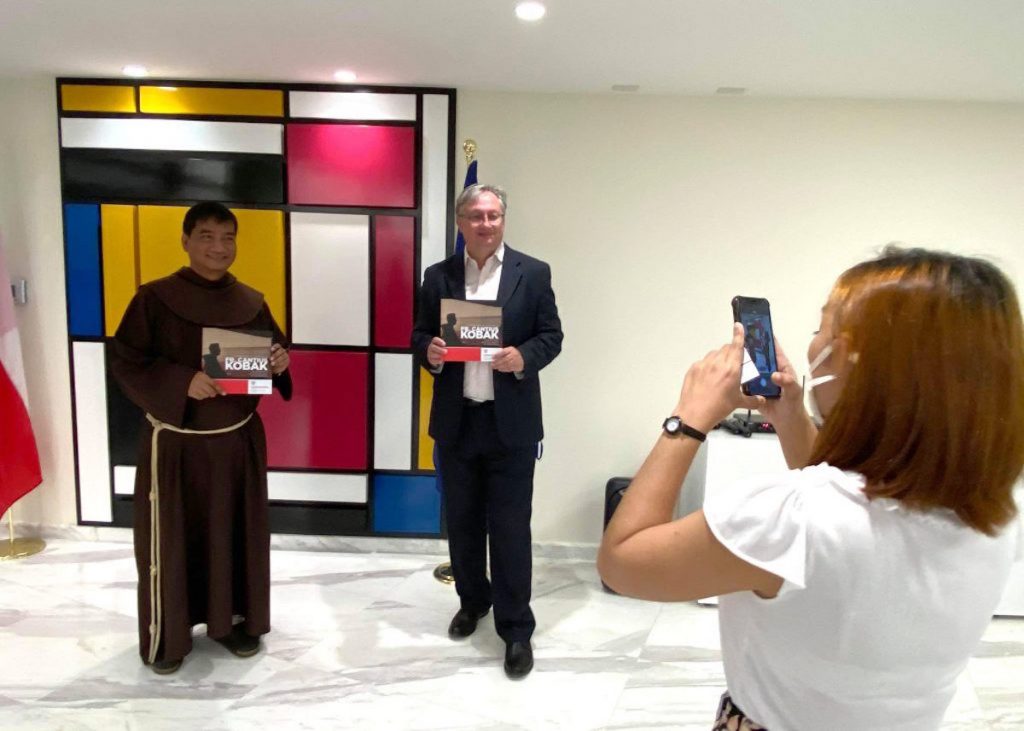The Embassy of Poland in Manila has launched a book that showcases the work of a Polish Franciscan missionary to the island of Samar in the central Philippines in the past century.
The “Extraordinary Life and Work of Fr. Cantius Kobak: A Polish Priest and Historian in the Philippines” provides an overview of the priest’s contribution to historical research in the country.
Written by Carl Jamie Simple S. Bordeos, the 34-page book, which was launched on Nov. 27, also offers a glimpse into the life of the missionary priest.
Ambassador Jarosław Szczepankiewicz, chargé d’affaires of the Embassy of Poland, said Father Kobak played a key role in the relationship between the Philippines and Poland.
“[The priest] was the bridge from Poland to the Philippines,” said Szczepankiewicz, citing the years of martial law when many communist countries had no formal relations with the Philippines.
Poland was under a communist government until 1989.
“[Father Kobak], among other Polish Franciscan missionaries, made the presence of Poland felt here in the Philippines,” said the ambassador.
Szczepankiewicz dubbed the priest as “the best friend the Filipinos could wish for.”
Born Zdzislaw (Jesse) Kobak in Chelmoniec, Poland in 1930, he migrated to the United States in 1937. In 1949, he became a Franciscan and was ordained priest in 1957.
Father Kobak was a missionary to the Philippines for 40 years. He began his mission as a teacher at Christ the King College in the city of Calbayog in 1959.
His fascination with Philippine culture led him to do extensive research on local history.
His findings spurred him to establish the CKC Archeological Museum and to initiate the Samar-Leyte Research Center where he was foremost etymologist.
In 1970, Father Kobak was transferred to Manila where he took several assignments but he continued his writings on Samar history and culture.
He was the foremost authority on the Sumuroy Rebellion in Samar in 1649 that spread across the southern part of the country.

His greatest scholarly achievement was tracing from different museums and archives in Europe and America and translating from Spanish to English the manuscripts of Jesuit priest Francisco Ignacio Alcina’s “Historia de las Islas e Indios de Bisayas … 1668”.
Bordeos, who works as curator of the Samar Archaeological Museum and director of the Cantius Kobak Research Center, described the priest as a “giant when it comes to the preservation of Samar and Bisayan’s history.”
In 1989, Father Kobak returned to the United States and served much of his time at the Mission Office of his Franciscan Province in Wisconsin.
He was last assigned as chaplain of St. Anne’s Nursing Home in 1998 in Milwaukee, where he also continued his research and writing on Samar history, which he expanded to Leyte.
Father Kobak died of cancer of the lymph glands on Aug. 15, 2004 at the age of 74.
Bordeos said the priest left precious items from Samar’s past that he recovered from his archaeological trips, some from ancient burial sites on the island. “Father Kobak left us a beautiful legacy. It is up to us now to continue what he has started. May his memory live on,” said the book’s author.